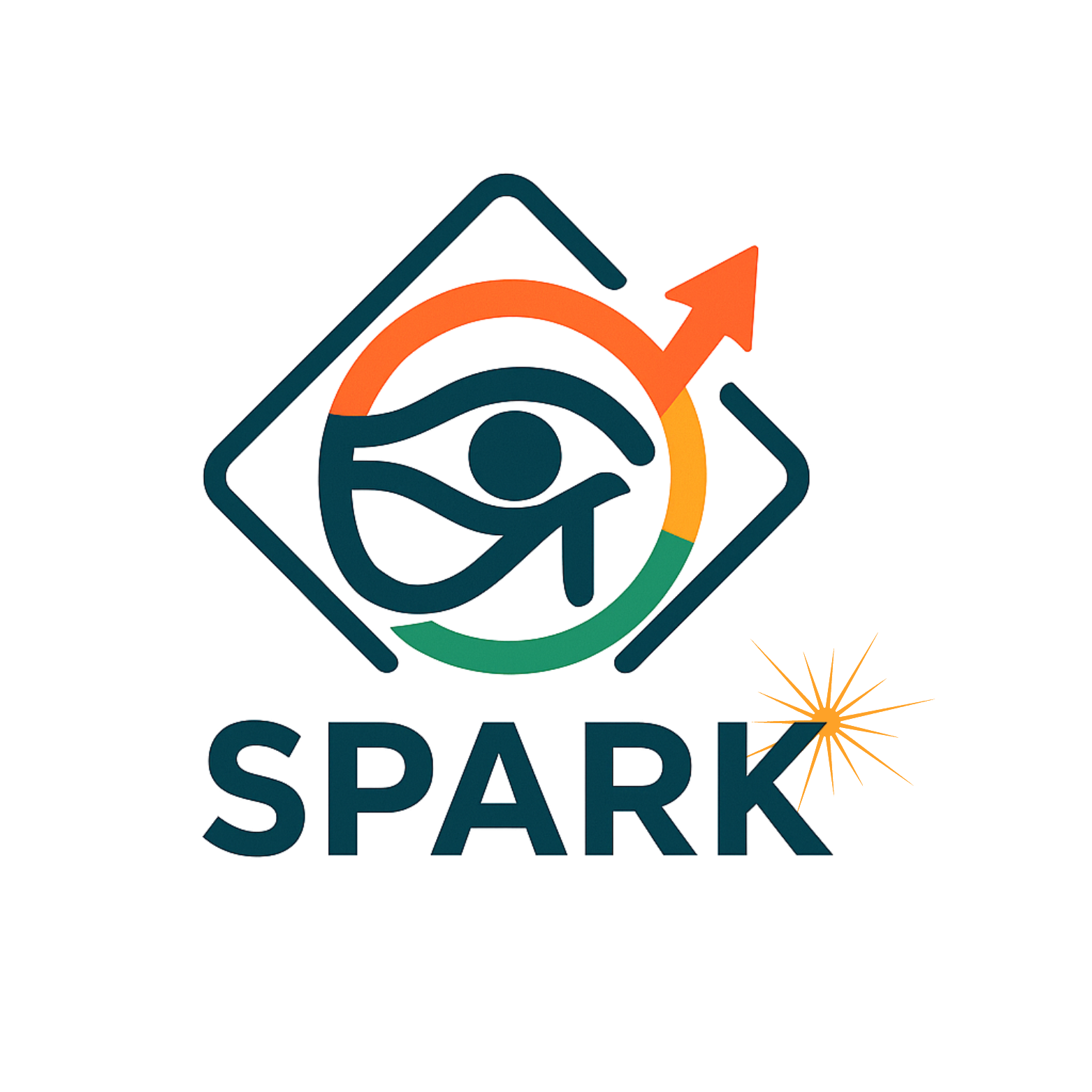Moments & Milestones
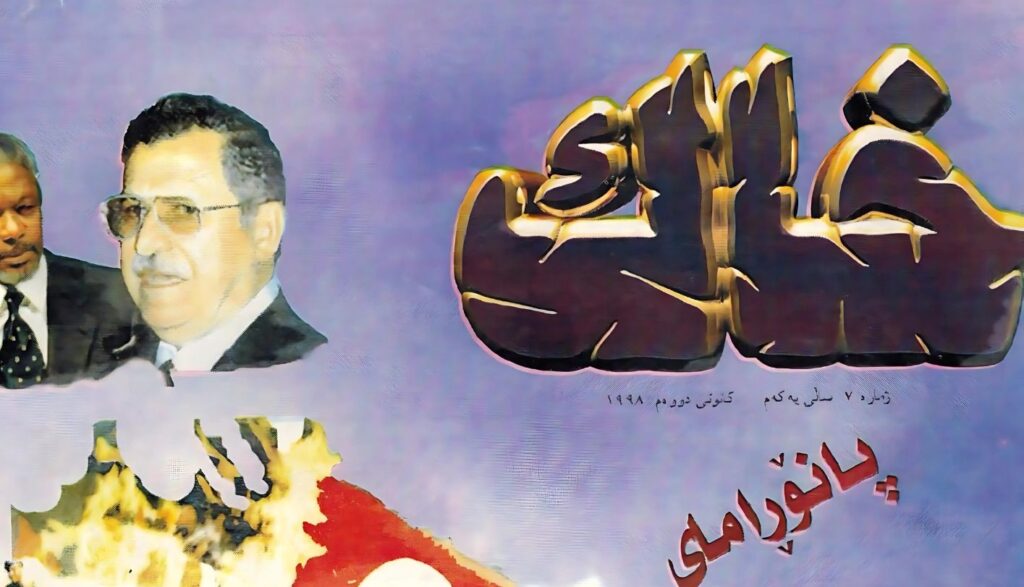
At a time when digital publishing was virtually unknown in Kurdistan, I introduced computer-based editing and color separation to Khak Magazine, transforming it from analog production to a fully digital workflow. I trained the editorial team, designed early issues, and laid the foundation for a self-sustaining, modernized publication. This cover represents not just a magazine — but a turning point in Kurdish media history.
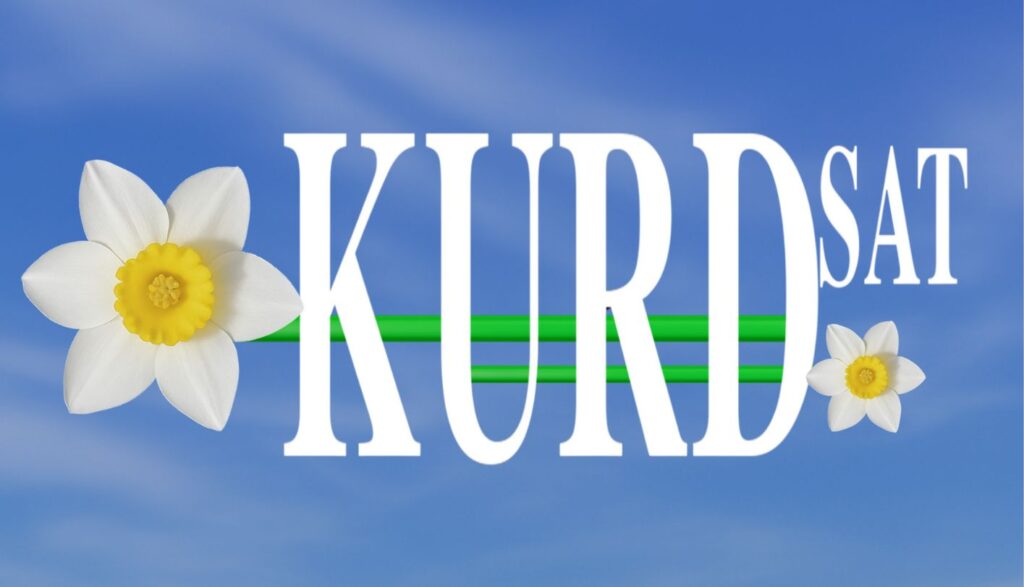
In a small room beside my computer lab — a space where I lived, worked, and dreamed — a new chapter in Kurdish media quietly began. This daffodil logo, which I conceived and animated for Kurdsat’s very first test broadcast, was more than just design. It symbolized cultural renewal, dignity, and resilience in a time of transition. That modest seed grew into a major television network. Though my path later turned toward Asiacell, I continued to support Kurdsat as it blossomed into a national voice.
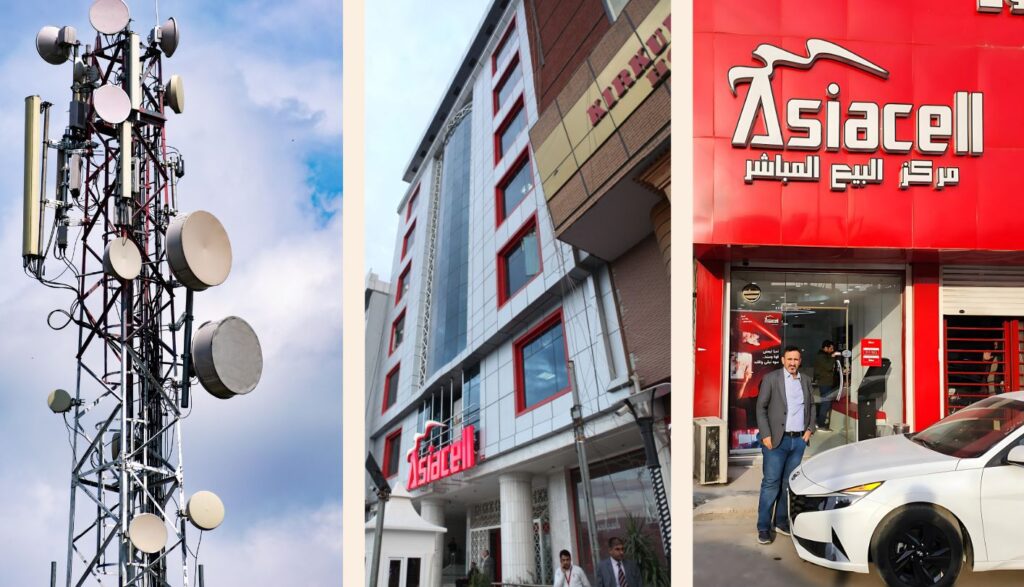
When I first joined what was then called Asia Center — later Asia Telecom, and eventually AsiaCell — it was a modest telephone bureau where people came to send faxes or make international calls. But even then, I saw beyond its walls. In the basement, I launched Iraq’s first internet café, offering the public a first glimpse into the digital world. I introduced the country’s first prepaid internet cards and configured Sulaymaniyah’s first-ever internet connection.
The technical obstacles were enormous. I still remember hundreds of sleepless nights, especially when we deployed a GSM system originally designed for a small island — wholly inadequate for Iraq’s urban demand. It nearly collapsed under the pressure. But we adapted, optimized, and kept it running.
Amid infrastructure scarcity, and logistical challenges, I initiated the first contact with Huawei — a decision that enabled us to eventually scale to over 70,000 lines by 2003, laying the groundwork for Iraq’s telecom revolution.
All of this took place under the leadership of Mr. Faruk Mustafa Rasool, whose vision and personal support were instrumental. He once said there were five people — himself included — without whom Asiacell would not exist. I was honored to be one of them.
This photo montage — of the transmission tower, headquarters, and my Baghdad franchise — represents more than telecom. It’s a story of resilience, foresight, and national transformation.
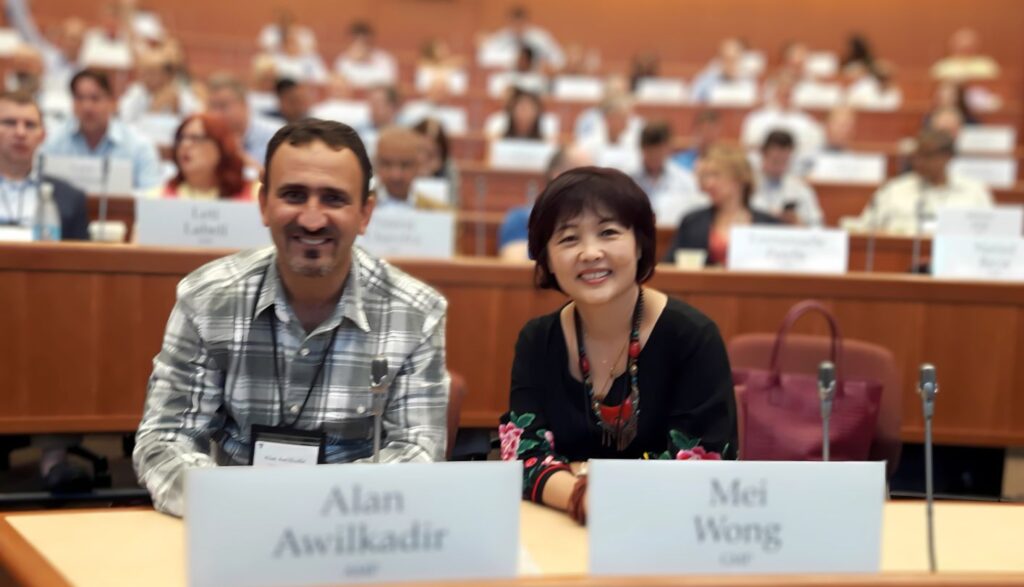
A moment from Harvard Business School’s Advanced Management Program (AMP 184) — the culmination of a profound academic and personal journey. I began at HBS in 2009 with PLD 9, later completing Authentic Leadership with Bill George, Changing the Game (negotiation), and Effective Strategies for Media Companies. Each program deepened my lens on leadership and shaped my path. In 2011, I earned HBS alumni status. AMP — Harvard’s most senior management program — brought me back again, making me a dual alumnus by both merit and experience. Few roads are as rigorous; fewer still, as rewarding.
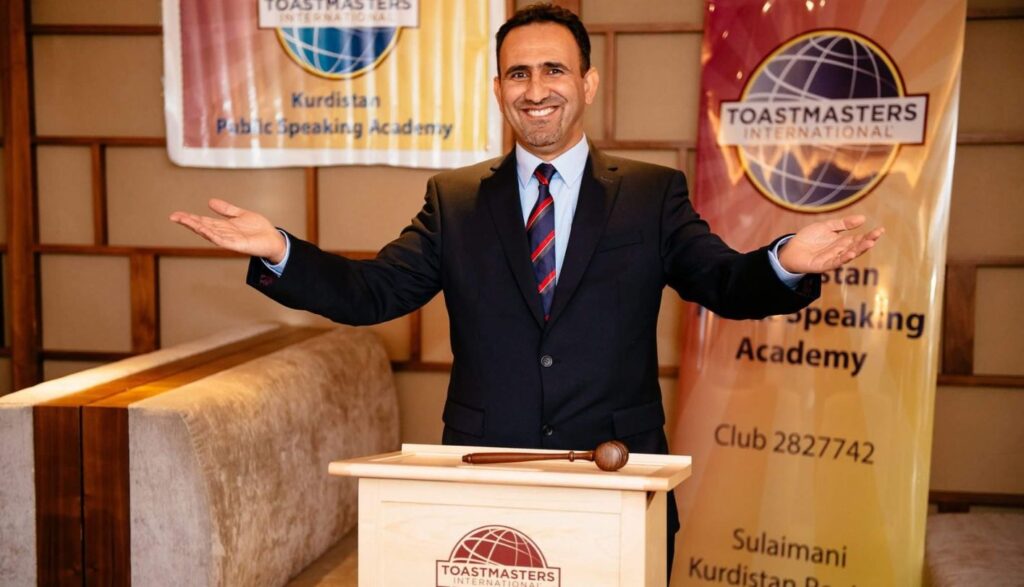
I founded the Kurdistan Public Speaking Academy (KPSA) as the first Toastmasters club in Iraq — a safe space where aspiring leaders could learn to speak, lead, and grow. With mentorship from Jacqueline Purcell, an advanced Toastmaster from the UK, we brought global standards of communication and leadership training to a region hungry for transformation. The journey began with conviction, and grew into a movement.
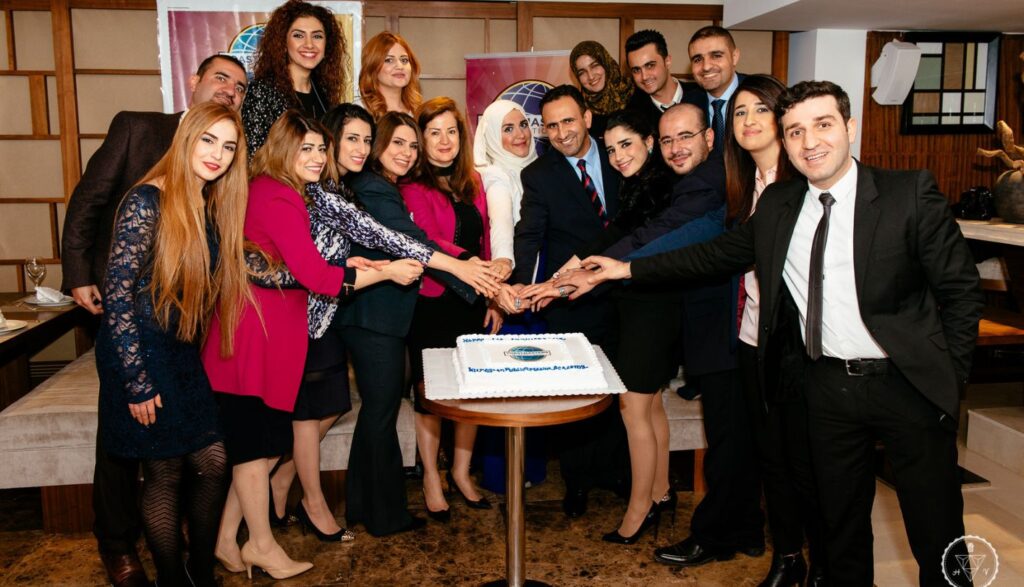
This joyful moment captures the spirit of what we built at KPSA — a community rooted in encouragement, learning, and growth. Every member had a story, and together we created a space where voices once silent became confident, clear, and inspiring. Leadership was not taught from a podium — it was practiced in every meeting, by everyone in the room.
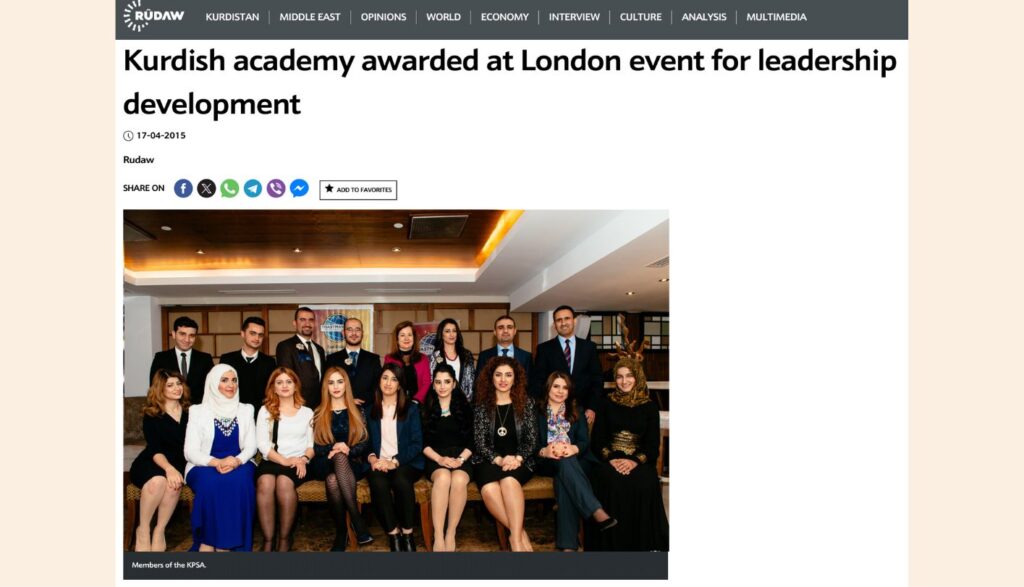
What started as a bold idea turned into a platform worthy of international praise. The Kurdistan Public Speaking Academy was recognized at a London leadership forum and covered by Rudaw for its impact. It became a symbol of what’s possible when purpose meets persistence — and when a voice is given room to grow.
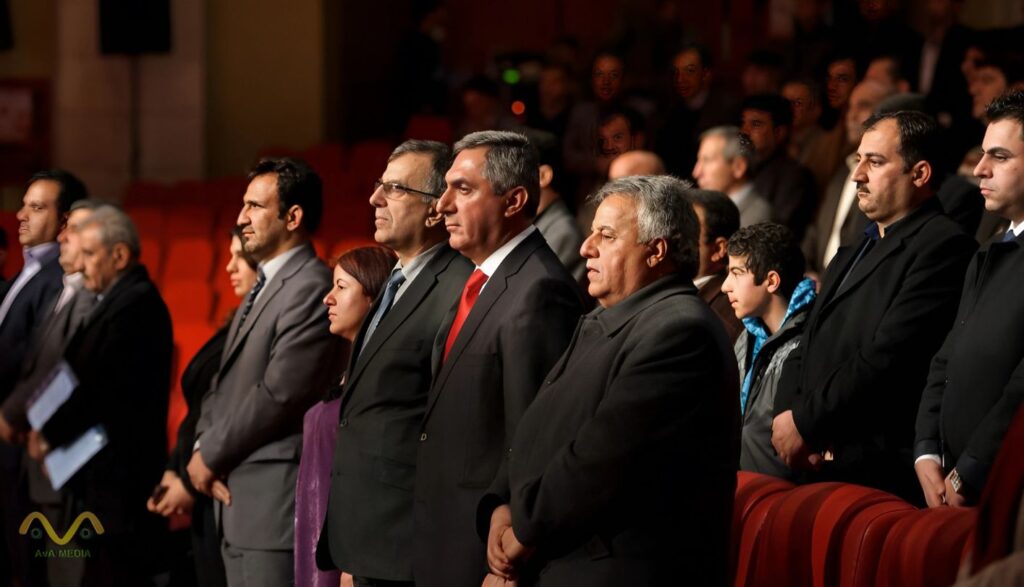
A celebration of art, culture, and international exchange.
I had the honor of attending the opening ceremony of the First International Theater Festival in Sulaymaniyah, standing alongside government ministers and cultural leaders. Events like this remind us that creativity is not a luxury — it’s a force for healing, dialogue, and identity. Moments like these reaffirm my lifelong belief that culture is a pillar of national transformation.
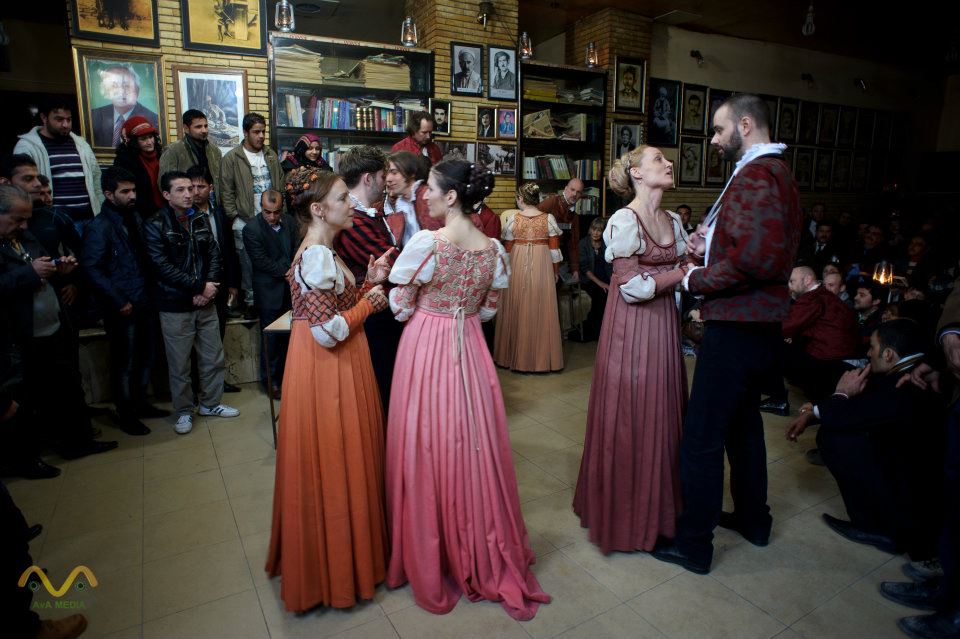
A moment from the First International Theater Festival in Sulaymaniyah
Artists from Europe perform in period costume before a captivated Kurdish audience, reflecting the power of art to transcend language and borders. Organized and supported by Ava Media, the festival created a rare space where global performance met local passion — igniting dialogue, connection, and shared imagination.
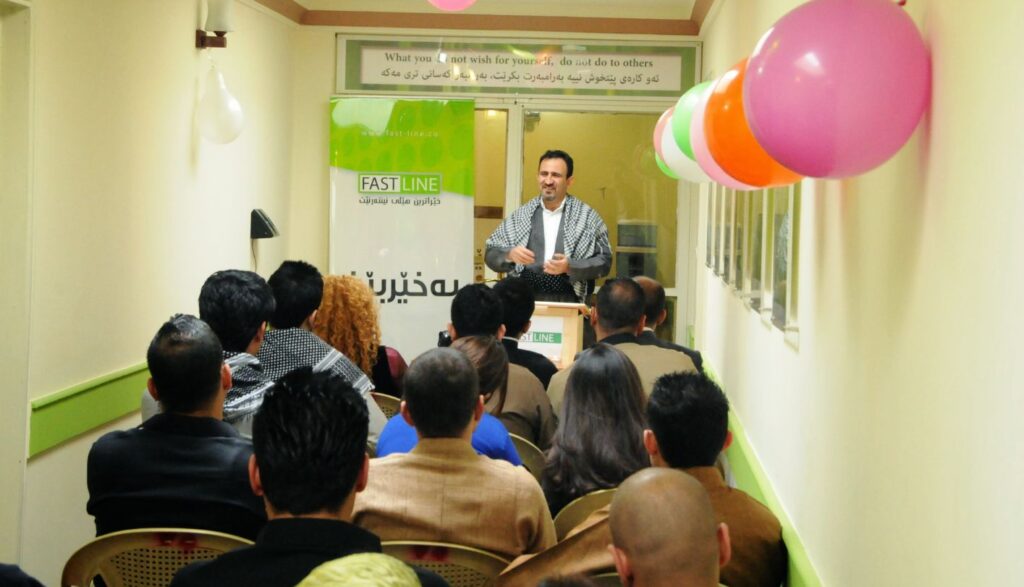
During a company-wide celebration of Kurdish Clothes Day at Fastline, I stood beneath a message I had placed at the heart of our workspace: “Don’t do to others what you wouldn’t want done to you.” This simple golden rule guided how we worked — with dignity, ethics, and a commitment to building something bigger than ourselves.
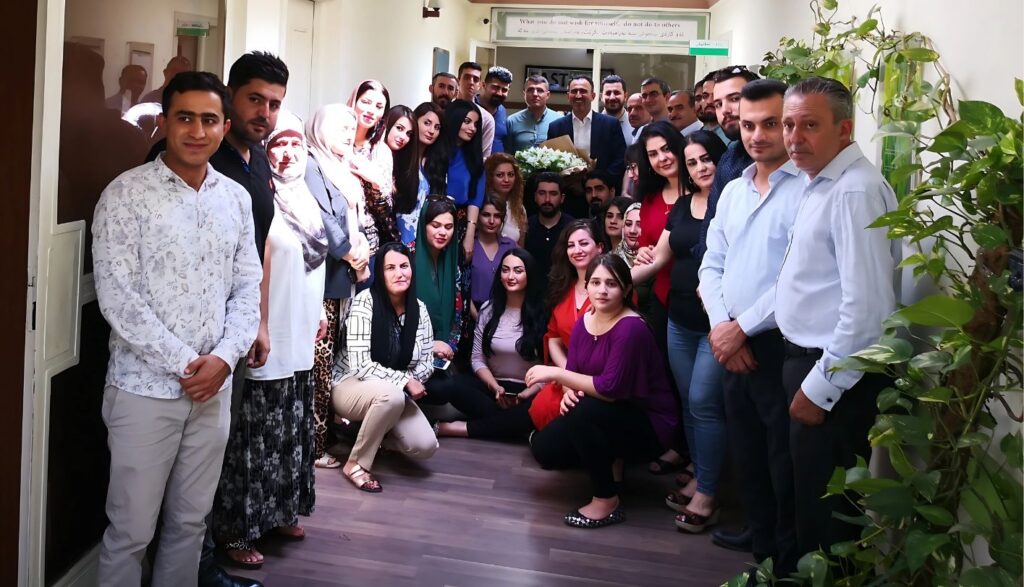
On my final day at Fastline, the team surprised me with a farewell cake and a custom poster — but that was just the beginning. They had printed and placed dozens of photos across the office walls: snapshots of our shared laughter, milestones, and everyday victories. It was more than a goodbye — it was a living tribute to the culture we built together, and a reflection of the respect that endured beyond titles and tasks.
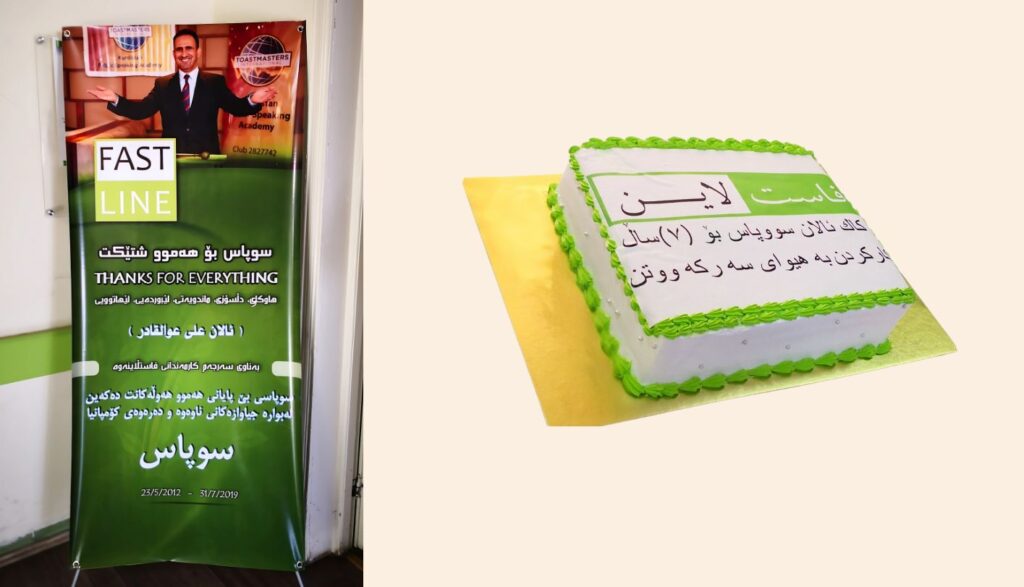
One of my colleagues shared this verse with our farewell photo — a line that captured the emotion of the moment more than any speech could:
“If only travel never existed,
If only the streets ended behind your home — if only.”
Sometimes, leadership is measured not in metrics, but in the tears, words, and memories left behind.
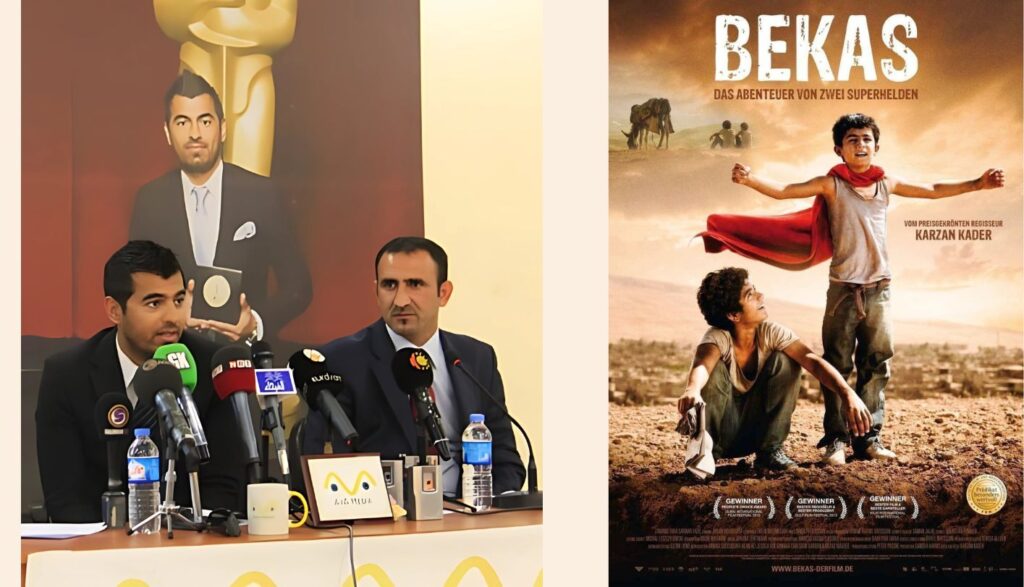
When Karzan Kader and Glenn Lund, then students of the Swedish Film Institute, first shared their dream of Bekas, I saw something rare. As the founder of Ava Media, I supported their journey from idea to screen — helping co-produce both the award-winning short film and its full-length feature. The short version later earned a Student Academy Award®, presented by the Oscars®, marking a historic moment for Kurdish cinema. Our collaboration was more than sponsorship; it was a belief in young voices and stories that deserved to be seen.
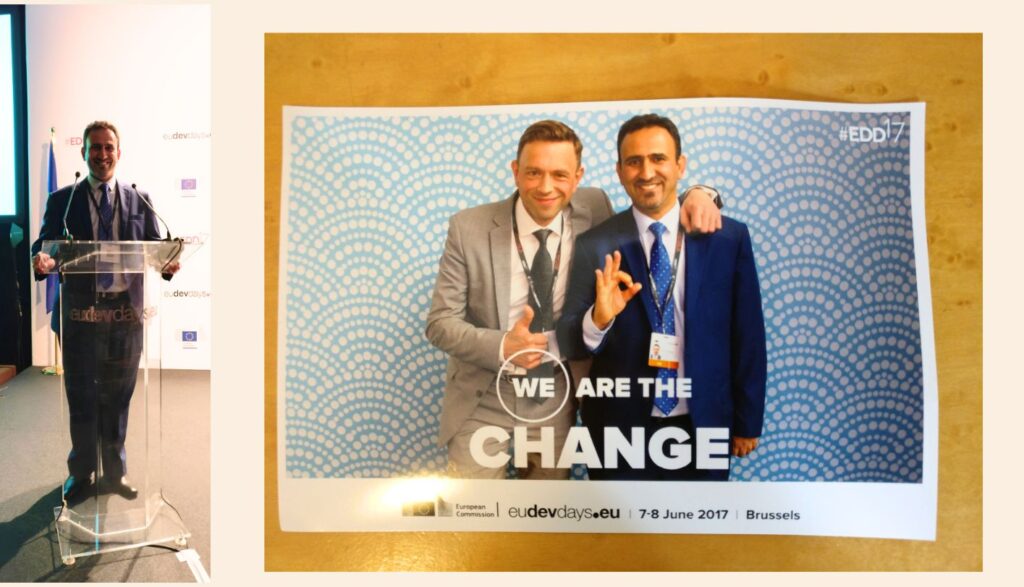
At the European Development Days 2017 in Brussels — the EU’s flagship forum on global development — I was honored to speak on digital justice and institutional reform. Representing the Kurdistan Electronic Court initiative, I joined leaders including Frank Tumwebaze, then Uganda’s Minister of Information Technology and Communications, and Priit Kongo, CEO of Estonia’s Net Group, to explore how digitization can enhance trust and attract investment. It was a privilege to contribute to this global conversation on equity, access, and innovation in governance.
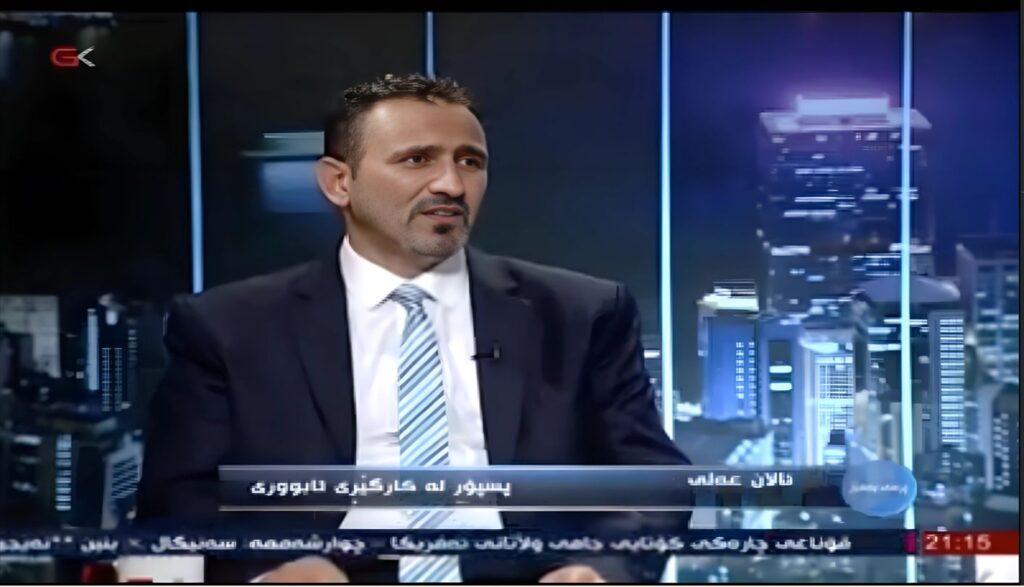
Throughout the years, I’ve been invited to speak on numerous televised programs, offering insights on governance, innovation, leadership, and development. This photo, taken during a GK TV discussion alongside host Bahez and Dr. Ezzat Sabir (now Iraq’s Deputy Minister of Oil), reflects just one of many conversations where I’ve contributed to national dialogue. Whether on Kurdish, Arabic, or international media, I’ve always seen these moments as opportunities to elevate public thought and advocate for meaningful change.
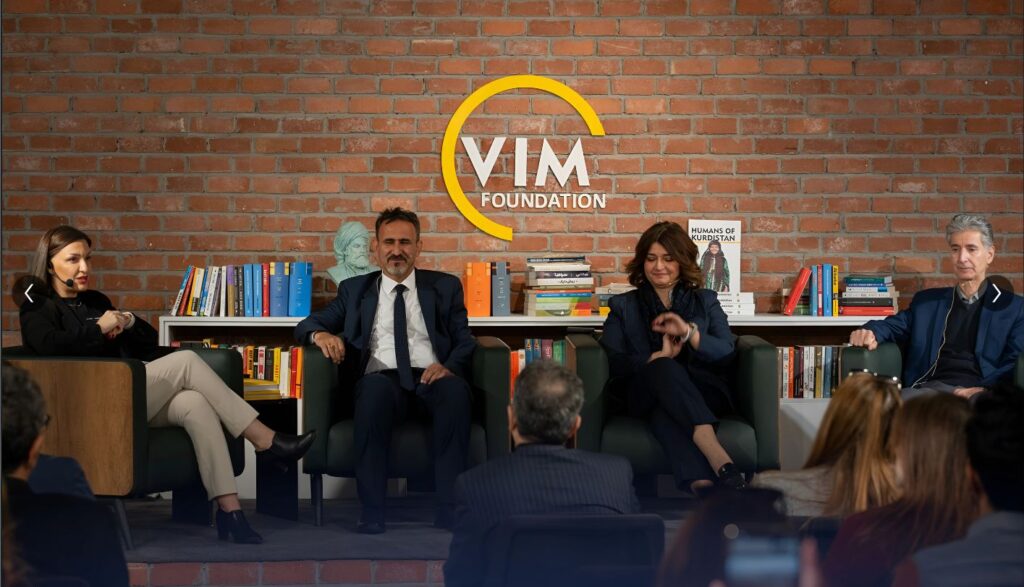
Invited by the American University of Iraq, Sulaimani (AUIS) and its Professional Development Institute (PDI), I was honored to speak alongside esteemed colleagues in a powerful panel exploring the future of leadership, governance, and strategic thinking in Iraq.
Hosted by the VIM Foundation, the discussion bridged theory and lived experience — tackling the challenges of building trust, shaping institutions, and nurturing ethical, long-term leadership in a rapidly shifting landscape.
What emerged was more than a conversation. It was a call to lead with clarity and conscience — and a shared belief that Iraq’s future will be built not only through reform, but through the courage of those who choose to lead differently.
My gratitude to AUIS and PDI for their enduring commitment to excellence, and for creating spaces that dare to imagine a better tomorrow.
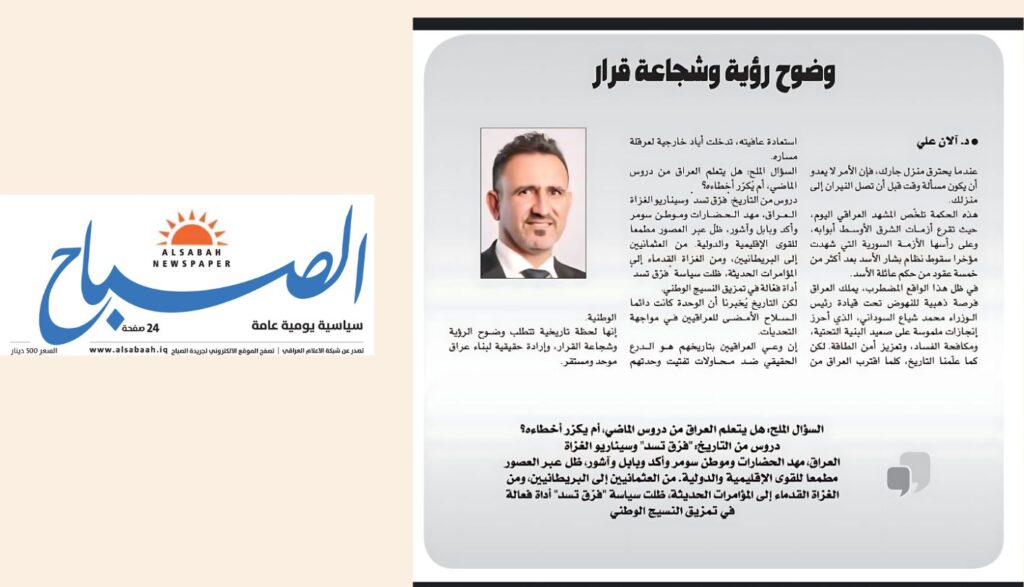
In a pivotal moment for Iraq, I authored this article—“وضوح رؤية وشجاعة قرار” (Clarity of Vision and Courage of Decision)—published in Al-Sabah, Iraq’s leading daily newspaper. It questioned whether Iraq would learn from history or repeat its mistakes, urging bold leadership to break cycles of fragmentation and external influence.
The article resonated deeply, generating thousands of reactions and thoughtful engagement across platforms. I consider it a humble contribution to the national dialogue, written with both urgency and hope for a unified, sovereign future.
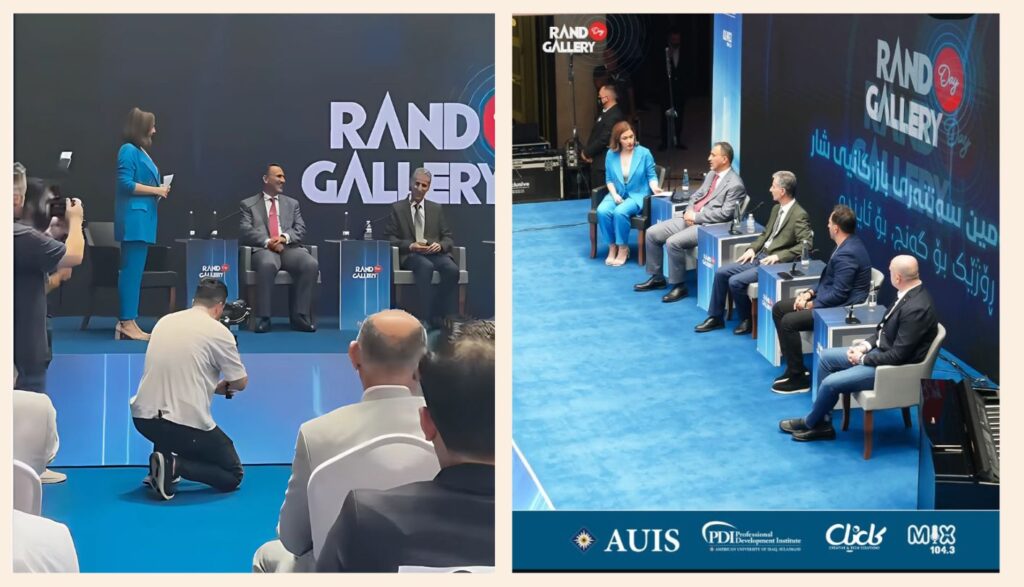
At this AUIS-led panel in Sulaymaniyah, I called for bold ideas to become bold actions. I proposed a citywide Council for Innovation & Development — rooted in education, agriculture, environment, and tourism. Legacy is not enough. Slemani deserves a future worthy of its name.
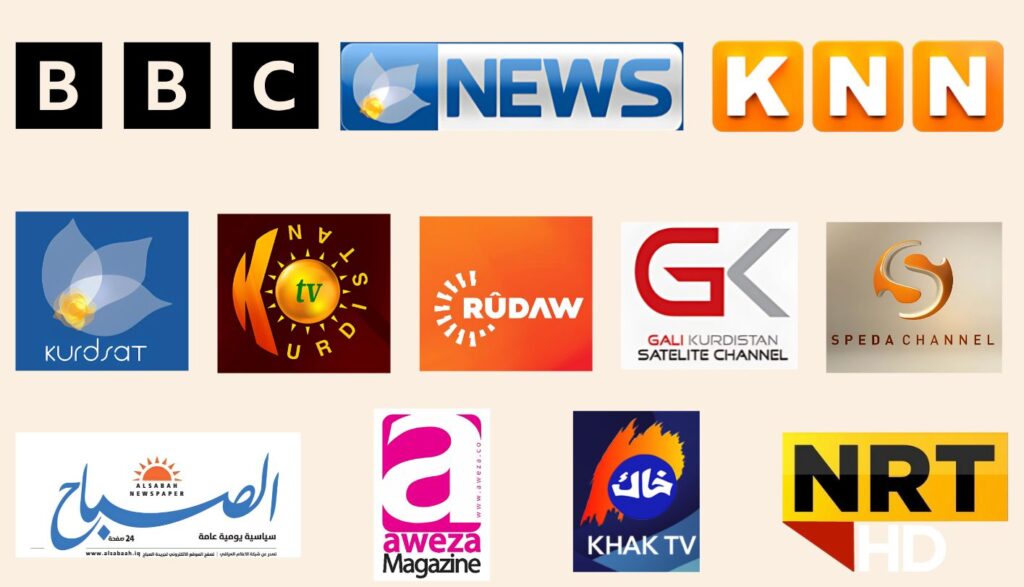
Throughout my journey, I’ve been invited to speak or featured in various programs, interviews, and articles across a wide range of respected media outlets — including BBC, Rudaw, NRT, GK, Kurdsat, Speda, Gali Kurdistan, KNN, Khak TV, and Alsabah Newspaper, among others. These appearances have spanned diverse topics, from leadership and innovation to social change and national development.
I continue to engage with the media as a contributor and guest, sharing insights that aim to inform, uplift, and inspire.
